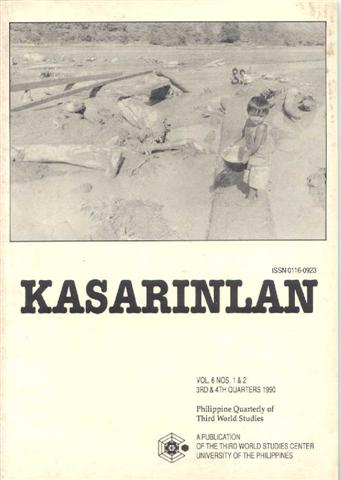Philippine Agrarian Reform Today: Fallen Hopes and New Possibilities
Abstract
Grassroots rural initiatives constitute the new possibilities that will save agrarian reform in the Philippines and rescue it from total oblivion. The Aquino government must realize that land reform cannot succeed without the support of the peasantry and farmworkers. It also cannot be implemented properly without their conscious and committed participation. The tragedy of the present government lies in its wholesale repetition of the conceptual errors of the discredited Marcos regime. This stems from the fallacy of rooting the causes of the Marcos-induced crisis by placing central blame on the personal whims and decadent desires of individuals rather than the economic development strategy adopted. In agrarian reform, the government attempts to tread a middle ground between peasants and landlords, rural workers and agri-business corporations, rich and poor, the powerful and the powerless. The result of the "middle-of-the-road" stance is already being felt--the maintenance of an iniquitous status quo, the continued deterioration of the living conditions of the rural poor, and a ponderous "centerpiece" program that refuses to move forward.
Published
2008-06-25
How to Cite
TADEM, Eduardo C..
Philippine Agrarian Reform Today: Fallen Hopes and New Possibilities.
Kasarinlan: Philippine Journal of Third World Studies, [S.l.], v. 6, n. 1, june 2008.
ISSN 2012-080X.
Available at: <https://journals.upd.edu.ph/index.php/kasarinlan/article/view/972>. Date accessed: 20 sep. 2025.
Issue
Section
Features
By submitting a manuscript, the authors agree that the exclusive rights to reproduce and distribute the article have been given to the Third World Studies Center.



